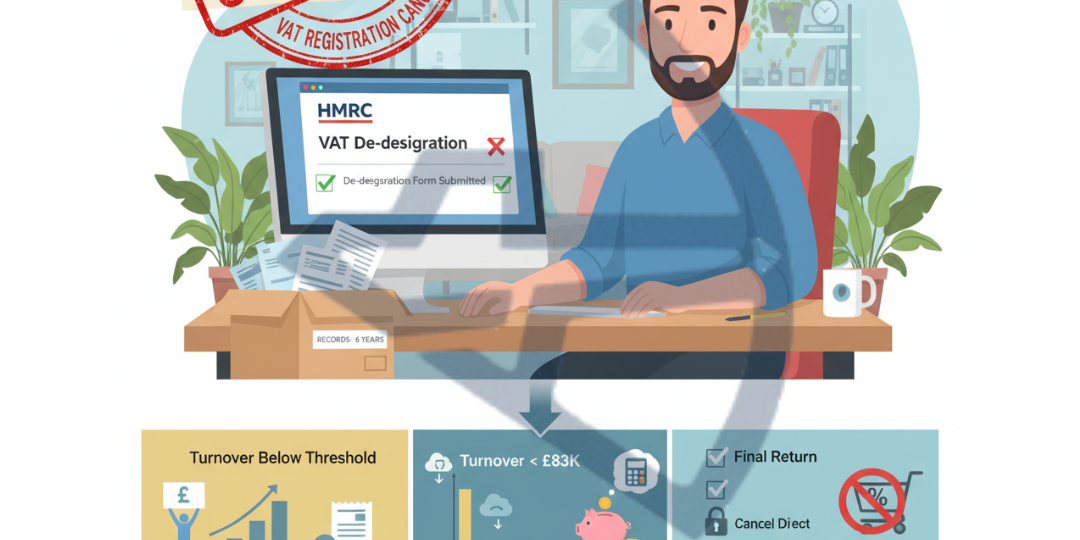Businesses considering VAT de-registration due to falling below the £88,000 threshold (allowing them to adjust prices or increase profit) must be aware of significant hidden costs.
Key Pitfalls:
- VAT on Assets: If the VAT on remaining stock, equipment, or other assets exceeds £1,000 at de-registration, this amount must be repaid to HMRC.
- Capital Goods Scheme (CGS): This is a major concern for businesses with high-value land/buildings or refurbishments (over £250,000) where VAT was reclaimed. If de-registration occurs within 10 years, a portion of the original input VAT claimed must be repaid, based on the remaining years. For example, Mr. & Mrs. Brown’s hotel, bought for £500,000 with £100,000 VAT reclaimed four years ago, would owe £60,000 (60% of £100,000) if they de-registered.
- Opting to tax the property at de-registration to avoid CGS could result in owing VAT on the current, potentially higher, property value, leading to an even larger bill.
Conclusion:
De-registration can lead to substantial unexpected VAT bills, potentially negating any benefits or even putting the business in a worse financial position. It’s crucial to consider these “clawback” mechanisms, especially the CGS, and seek professional advice before making a decision.
If you are unsure as to whether to register or deregister for VAT speak to Archers Accountants your ‘straight talking advisors’.







